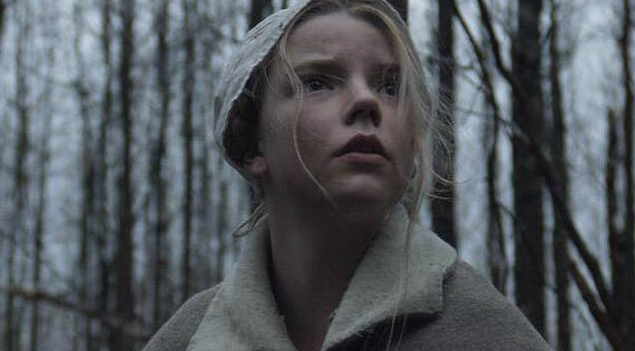The Witch is an unconventional horror film in execution and in subtext. Rarely do horror films so actively interrogate colonial and contemporary gender politics in such an illuminating and liberating way.
Directed and written by newcomer Robert Eggers, The Witch collapses the distinction of good and evil in an era where such a distinction was clearly defined. The Witch follows a family of Puritan settlers in New England. After their youngest child is kidnapped by a witch, the family begins to grow suspicious of the eldest daughter, Thomasin (Anya Taylor-Joy), whom they suspect of witchcraft. Egger’s screenplay effectively lays out the orthodoxy of the era’s religious discourse by having the family interrogate – without concrete evidence – Thomasin for her alleged ties to Satan. The result is a harsh depiction of sexism in a puritanical society, where patriarchal domination and control was exercised over the female body and sexuality by explicitly tying female carnality to Satanic acts of witchcraft.
Traditionally, horror films often situate the creature – in this case, the forest-dwelling witch – as a repressed societal anxiety. Here, witches and witchcraft aren’t discursively tied to villainy. Here, it is the zealotic family who are depicted collectively as flawed and villainous. It is through these flaws that the “evil” is invited in their home to destabilize their lives.
In their recent endorsement of the film, The Satanic Temple defended the film’s promotion of “spiritual transgression.” Indeed, the film’s gender politics is in line with the Temple’s support of gender equality. Given the recent explosive debates over abortion rights in the U.S., The Witch’s intervention into the debate over the control over female bodies is timely and appropriate.
As a horror film, however, The Witch is more shocking than frightening. Its affective nature derives not from its ability to “scare” us but from its ability to overwhelm us. Eggers efficiently creates an atmosphere oozing with dread and tension. The fogginess and mystery of the rustic environment is also used effectively as an overwhelming space to both the characters and the spectators. The nearby forest is always lurking as a space unknown to us. Its ambiguity only serves to underscore the epistemological limitations and ignorance of the time (and by extensions, ours).
The Witch is effortlessly affective and insightful without ever being forceful. Despite the occasional insignificant creative miscalculation, Eggers demonstrates a clear talent for developing atmosphere and tacit commentary. The Witch transcends the expectations set by the amount of buzz it has generated. It’s unlikely to play well with traditional audiences (and indeed it is difficult to find the ideal audience for this film), but those desiring a thoughtful and stunning horror film will be more than satisfied.
**********
Do You Tweet? Follow These Tweeple:
Mark Barber: @WorstCinephile




Leave a comment